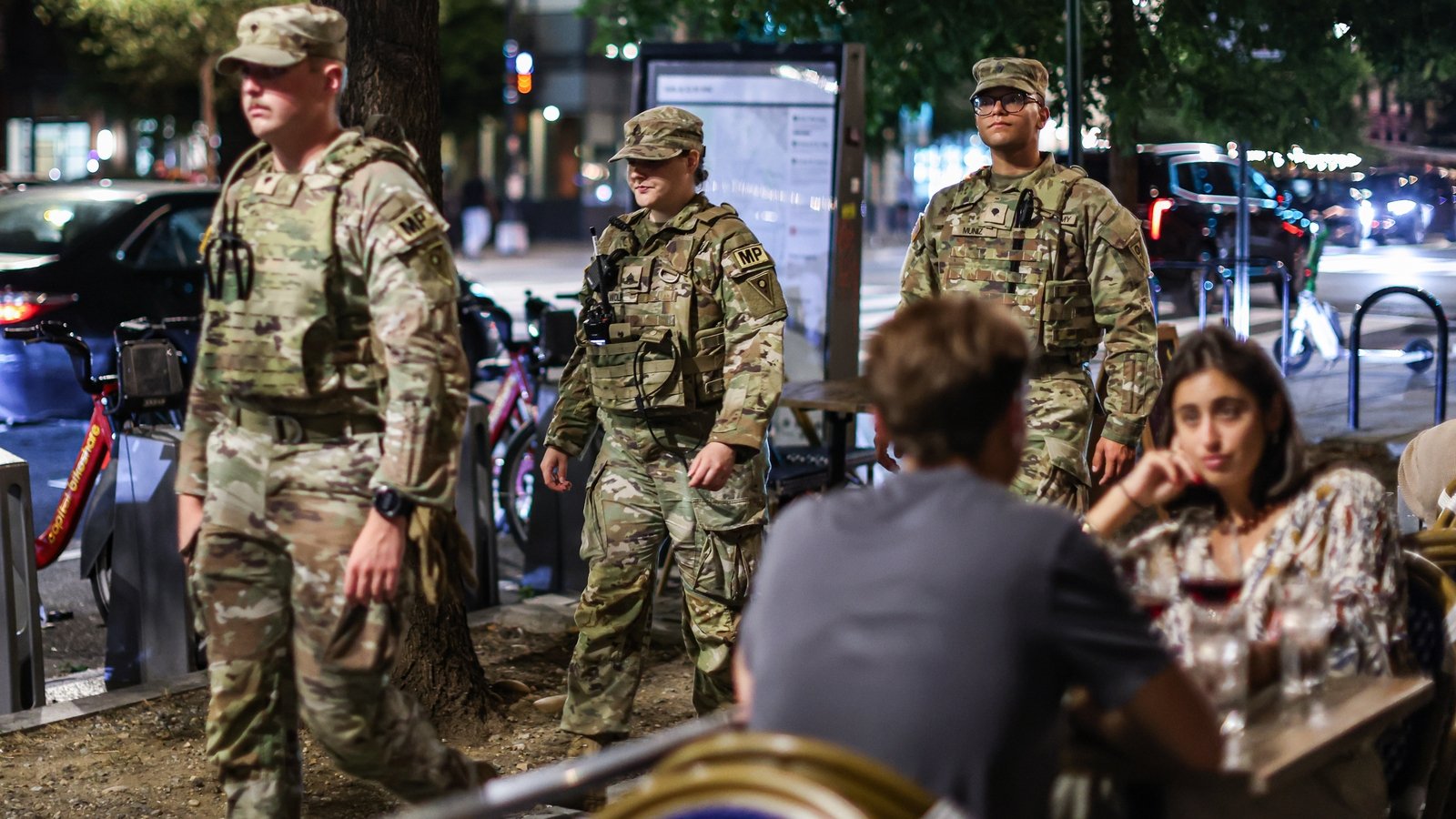US National Guard troops patrolling the streets of Washington DC as part of what US President Donald Trump said was his crackdown on crime will begin carrying weapons last night, two officials said.
Why it matters
- The deployment of armed National Guard troops is a significant escalation in the government’s response to crime in the nation’s capital.
- This move reflects ongoing tensions surrounding public safety and law enforcement practices in urban areas.
- The presence of armed troops may influence public perceptions of safety and law enforcement’s role in community policing.
In a decisive move to bolster public safety in the nation’s capital, the United States National Guard troops commenced armed patrols through the streets of Washington DC last night. This action is part of a broader initiative announced by President Donald Trump aimed at curbing crime, which has become a pressing concern for many residents and officials in the city.
According to two officials familiar with the matter, the deployment signifies a notable shift in the approach to managing security in the capital. The National Guard’s involvement comes amidst ongoing debates about law enforcement tactics and the balance between maintaining order and respecting civil liberties. President Trump has consistently emphasized the need for a strong response to crime, which he claims has been exacerbated in urban centers across the country.
The decision to arm National Guard troops was likely influenced by recent spikes in crime rates, particularly in certain neighborhoods of Washington DC. The city has seen an uptick in violent crime, prompting calls from local officials and citizens alike for more robust policing strategies. Critics, however, argue that increasing the presence of armed personnel may lead to heightened tensions between law enforcement and community members, particularly in areas with a history of strained relations with police.
Local leaders in Washington DC have expressed mixed feelings about the National Guard’s armed presence. Some believe it is a necessary measure to restore a sense of safety in neighborhoods grappling with crime, while others warn that it could escalate tensions and lead to confrontations. The presence of armed troops could also affect the way community members interact with law enforcement, potentially fostering an atmosphere of fear rather than security.
The National Guard’s role in domestic law enforcement has been a contentious topic, with many questioning the appropriateness of deploying military personnel in civilian spaces. Critics contend that military-style responses to crime can undermine trust between law enforcement and the communities they serve. Advocates for community policing emphasize the importance of building relationships and fostering trust, which can be undermined by an armed military presence.
In addition to the immediate implications for public safety, the National Guard’s deployment raises questions about the long-term impacts on policing strategies in the United States. As cities grapple with issues of crime, accountability, and community relations, the federal government’s choice to send armed troops may serve as a precedent for similar actions in other urban areas facing similar challenges.
In light of these developments, community organizations and advocacy groups are mobilizing to voice their concerns and push for alternative approaches to crime prevention that prioritize community engagement and support rather than militarization. Many community leaders argue that effective crime reduction strategies should focus on addressing the root causes of crime, such as poverty, lack of access to education, and inadequate mental health resources, rather than relying solely on an increased police presence.
As the National Guard patrols begin, residents of Washington DC will be closely observing the impact of this initiative on their neighborhoods. The armed troops' presence may lead to a temporary sense of safety for some, but for others, it could intensify feelings of unease and distrust toward law enforcement.
With the situation evolving, it remains to be seen how the National Guard’s armed presence will affect crime rates in the capital and whether it will foster a collaborative relationship between law enforcement and the community. The coming weeks will likely reveal much about the effectiveness of this approach and its broader implications for policing in America.











